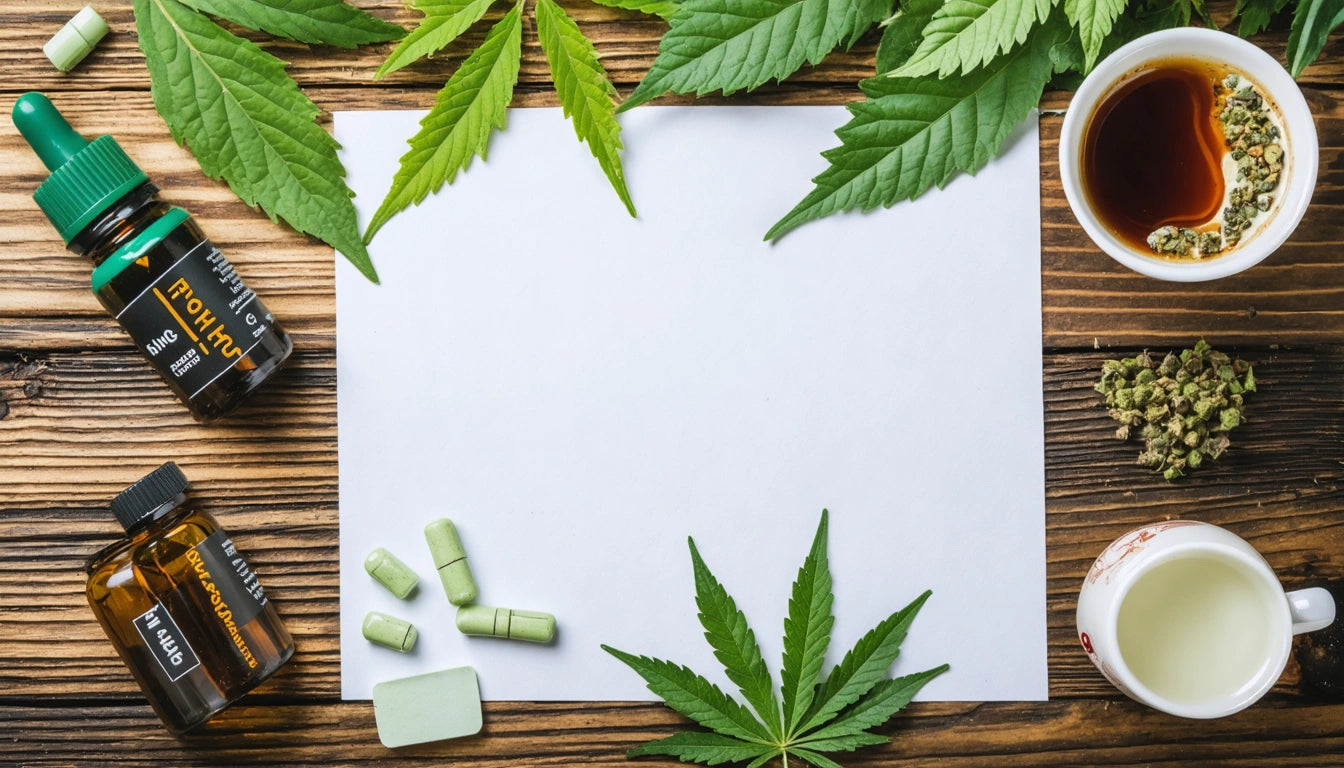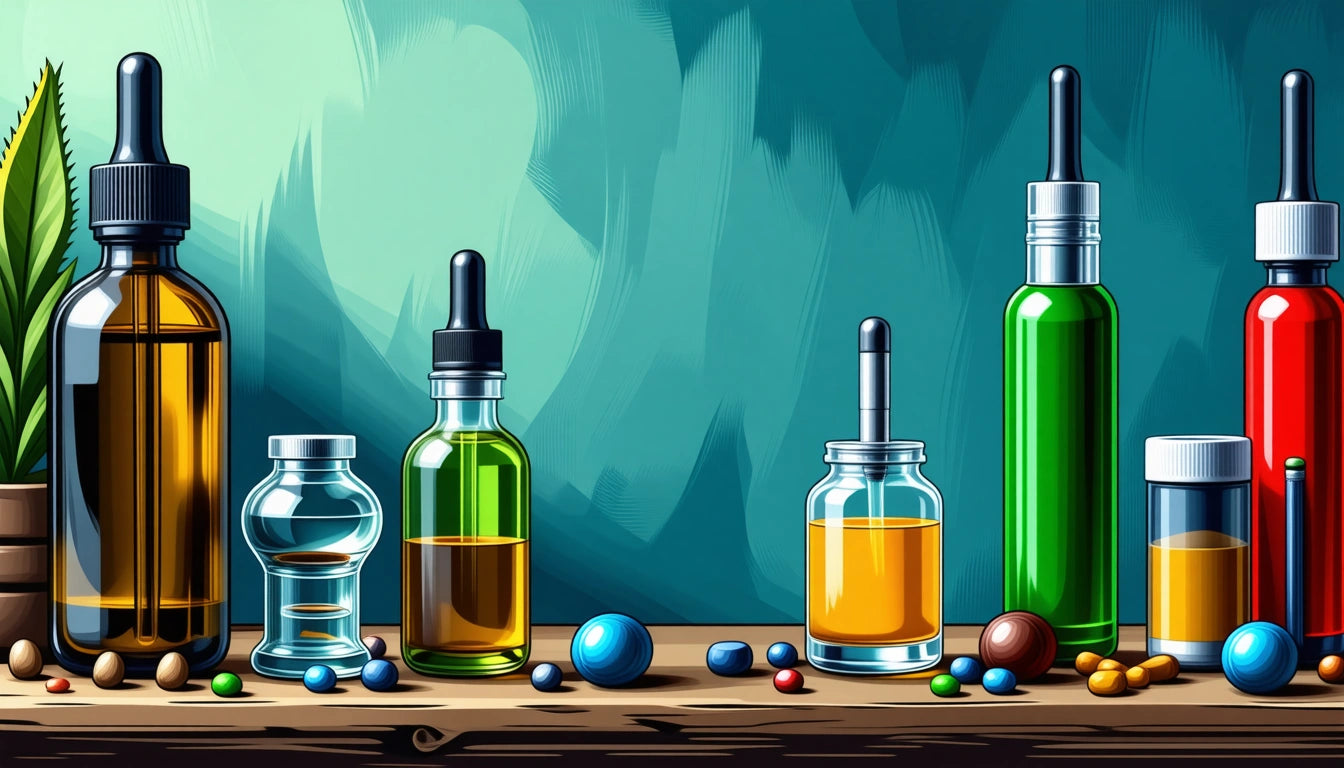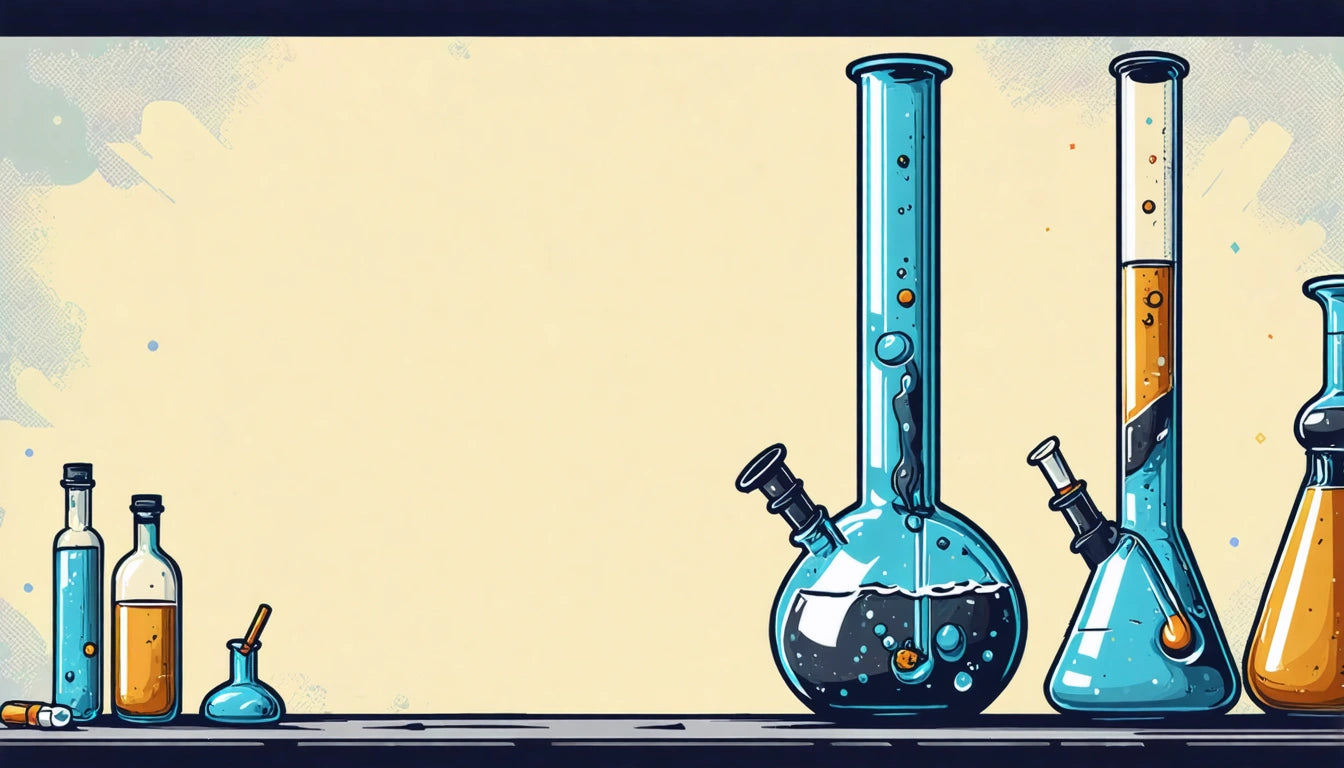Table of Contents
Understanding THC and THCA: Differences, Conversions, and Common Misconceptions
Cannabis chemistry can be confusing for both newcomers and experienced users. Two compounds frequently misunderstood are THC (tetrahydrocannabinol) and THCA (tetrahydrocannabinolic acid). This comprehensive guide clarifies their differences, explains conversion processes, and addresses common misconceptions about these cannabinoids.
THC and THCA: Basic Differences and Properties
THC and THCA are related but distinct cannabinoids with different properties and effects. THCA is the non-psychoactive precursor to THC found naturally in raw cannabis plants. Unlike THC, THCA does not produce intoxicating effects when consumed in its raw form.
The primary differences include:
- Chemical structure: THCA contains an additional carboxyl group (COOH) that THC lacks
- Psychoactivity: THC binds directly to CB1 receptors in the brain, creating the characteristic "high," while THCA does not
- Medical applications: Both compounds have potential therapeutic benefits, but through different mechanisms
Many consumers wonder does THCA have THC in it? Technically, no. THCA is a distinct molecule, though it can convert to THC under certain conditions.
The Conversion Process: How THCA Turns Into THC
The transformation from THCA to THC occurs through a process called decarboxylation. This chemical reaction removes the carboxyl group from THCA, converting it to psychoactive THC. For those wondering how to turn THCA into THC, several methods exist:
Heat Application
The most common decarboxylation method involves applying heat, which occurs naturally when:
- Smoking or vaporizing cannabis
- Cooking with cannabis (baking, simmering)
- Using a decarboxylation device specifically designed for cannabis
When cannabis is heated to approximately 220-245 °F (105-118 °C) for an extended period, THCA converts to THC. This is why raw cannabis must be heated to produce psychoactive effects.
Time and Light Exposure
THCA also converts to THC gradually through:
- Extended storage (though at a much slower rate)
- Exposure to ultraviolet light
- Natural aging of the plant material
For those interested in proper storage solutions that help preserve cannabinoid content, specialized mylar storage bags with light-blocking properties can help maintain the chemical integrity of cannabis products during storage and transportation.
Common Misconceptions About THC in Popular Products
There are numerous misconceptions about which products contain THC. Let's address some common questions:
Vape Products and E-cigarettes
Many people ask do Geek Bars have THC or does Lost Mary have THC? Standard nicotine vapes and e-cigarettes like Geek Bar and Lost Mary do not contain THC or THCA. These are nicotine products regulated separately from cannabis. However, there are specialized THC vape products available in legal markets that do contain cannabis extracts.
Alternative Cannabinoids
Another common question is does HHC have THC in it? Hexahydrocannabinol (HHC) is a distinct cannabinoid from THC, though it can produce similar effects. It does not contain THC but is a THC analog with a slightly modified chemical structure.
Psychedelic Products
Questions like do shrooms have THC or do mushroom gummies have THC in them reflect confusion between different classes of substances. Psilocybin mushrooms ("shrooms") contain psilocybin and psilocin as their active compounds, not THC. Similarly, mushroom gummies typically contain either non-psychoactive mushroom extracts (like lion's mane or reishi) or psilocybin in some jurisdictions where it's legal.
Pharmaceutical THC
Does Marinol have THC? Yes, Marinol (dronabinol) is a pharmaceutical formulation of synthetic THC approved by the FDA for certain medical conditions. It contains THC but not plant-derived cannabinoids or terpenes found in whole-plant cannabis.
Herbal Products
Does blue lotus have THC in it? No, blue lotus (Nymphaea caerulea) contains aporphine and nuciferine, which have mild psychoactive properties, but it does not contain THC or other cannabinoids.
How THC Is Stored and Detected in the Body
Understanding how THC interacts with the body helps explain detection times and effects:
Fat Storage
Does THC store in fat cells? Yes, THC is lipophilic (fat-soluble), meaning it's stored in fat tissues throughout the body. This explains why THC can be detected long after use and why effects may vary based on body composition.
According to research on how THC is processed, the compound can remain in fat tissues for weeks, gradually releasing back into the bloodstream.
Detection Windows
Does THCA stay in your system as long as THC? Generally, THCA has a shorter detection window than THC since it's not stored in fat cells as efficiently. However, most drug tests actually screen for THC-COOH, a metabolite produced when the body processes THC.
Secondhand Exposure
Can THC get in your system from secondhand smoke? While possible, studies show that testing positive from secondhand cannabis smoke requires extreme conditions (small, unventilated space with multiple active smokers). Normal passive exposure rarely results in detectable levels.
Practical Applications and Future Research Directions
As our understanding of cannabinoid science evolves, several practical applications and research areas are emerging:
- Targeted formulations: Products with specific THC:THCA ratios for different therapeutic effects
- Improved decarboxylation techniques: More efficient methods to convert THCA to THC while preserving terpenes
- Novel delivery systems: Technologies that allow for controlled decarboxylation at the point of use
- Pharmacokinetic research: Better understanding of how different consumption methods affect absorption and metabolism
The distinction between does THCA feel the same as THC and does THCA have the same effect as THC is important for both recreational users and medical patients. While THCA may offer anti-inflammatory and neuroprotective benefits, it works through different mechanisms than THC and produces distinctly different subjective experiences.
As cannabis research continues to advance, our understanding of these compounds and their interactions will undoubtedly improve, leading to more effective and targeted applications for both medical and recreational use.











Leave a comment
All comments are moderated before being published.
This site is protected by hCaptcha and the hCaptcha Privacy Policy and Terms of Service apply.